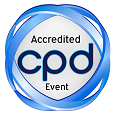
Renée Mirkes
The Center for NaProEthics- The Pope Paul VI Institute, USA
Title: Nurse-Midwifery & NaProTECHNOLOGY: Healthcare women really need
Biography
Biography: Renée Mirkes
Abstract
Na Pro TECHNOLOGY is a dynamic, universal women’s health science developed by Dr. Thomas W. Hilgers and his colleagues at the Pope Paul VI Institute, Omaha, NE. Evolving over four decades of clinical research, Natural Procreative Technology (NPT or NaPro for short) utilizes a standardized and prospective system of monitoring a woman’s menstrual and ovulatory cycles whose biofeedback is critical in helping women understand their gyn-ecology and fertility. One abiding hallmark distinguishes NPT’s 40-year history: A woman’s healthcare goals—the regulation of fertility and the identification and treatment of reproductive abnormalities—are realized in cooperation with her natural reproductive system. Here I bring the defining concepts and clinical practices of NaProTECHNOLOGY (NPT) into dialogue with those of nurse-midwifery (NMY). Speaking for the former, NPT, will be a representative group of female patients who will recount their experiences in taped sound bites taken from their personal testimonies included in the book, Women Healed. Speaking for the latter, NMY, is a member of the American College of Nurse Midwives (ACNM) recounting her experience of the philosophy-of-care principles as enunciated by the College. In Part One, the representative nurse midwife articulates her lived experience of ACNM’s philosophy-of-care principles:
(1) Women’s healthcare is both preservation of wellness and prevention of illness that includes screening (e.g., annual gynecological exams); fertility education/family planning; minimization of risks during labor and delivery, and optimization of natural benefits in every phase of childbearing (pre-, peri-, and post-birth).
(2) Women’s healthcare is a holistic concept that views birthing as a normal physiological process that encompasses a woman’s bio-psycho-social wellbeing.
(3) Women’s healthcare must be comprehensively studied so that (a) basic diseases can be analyzed within the larger picture of women-specific responses; (b) the menstrual and ovulatory cycle can be seen as a natural bodily phenomenon that affects and is affected by a woman’s total health, and (c) the natural process of childbirth is respected by optimizing chances for a normal vaginal birth while minimizing technological and invasive interventions.
(4) Women’s healthcare must be properly researched in evidence-based studies that address the female body and female health needs throughout the continuum of a woman’s life: preconception care, prenatal care, labor and delivery support, newborn care, family planning education, and menopausal management.
(5) Women’s healthcare must be pursued with sensitivity to women’s values and their experience in wellness and illness.
(6) Maternity care is optimally facilitated when women are informed participants in their own care and when they are encouraged to involve designated family members in their labor and birth experience.
(7) Maternity care is best supported with a multidisciplinary team approach (e.g., by a midwife-led continuity of care model for low-risk pregnancies).
In Part Two, a representative group of patients articulate how their lived experience of the care principles behind NaProTECHNOLOGY (NPT) seamlessly incorporates and complements those of nurse-midwifery (NMY):
(1) NPT embraces an essential priority of NMY by being, in the first place, holistic and woman-friendly.
(2) NPT achieves another positive goal of NMY by being person-centered.
(3) NPT attains the same worthy objective of NMY in being patient-specific and freedom-enhancing.
(4) NPT achieves a focal principle of NMY in promoting stewardship-focused empowerment.
(5) NPT attains an important tenet of NMY by being prevention-oriented.
(6) NPT honors yet another standard of NMY in being multi-disciplinary and research based.
(7) NPT realizes a significant goal of NMY in being family-friendly.
(8) Finally, NPT advances an important priority of NMY in being culture-friendly.
NMY and NPT are what women should really want from healthcare because they provide what women really need:
The opportunity to pursue the basic goods of health, family, and procreation encompassing physical, spiritual and social wellbeing. In sum, then, nurse-midwifery and NaProTECHNOLOGY offer women what they really need and, therefore, deserve: healthcare that is woman-, family-, and culture-friendly

